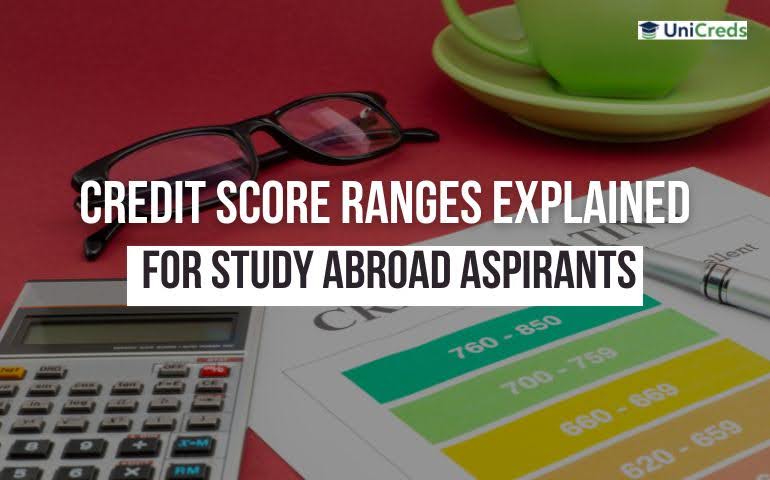Table of Contents
For students who have taken multiple loans to finance their education, managing repayments can become overwhelming.
This is where a debt consolidation loan can be a game-changer. But what exactly is it, and how can it benefit students who have taken an overseas student loan consolidation?
This guide will take you through the fundamentals of debt consolidation, its benefits, and how students can leverage it to save money.
Understanding Debt Consolidation for Students
Debt consolidation refers to the process of combining multiple loans into a single loan, usually with a lower interest rate and a more manageable repayment plan. This helps streamline finances and ease the burden of handling multiple EMIs.
For students who have taken abroad education loan from multiple lenders, student debt loan consolidation can simplify their financial obligations and potentially reduce the overall repayment amount.
How Does a Debt Consolidation Loan Work?
Debt consolidation works by taking out a new loan to pay off existing student loans. This new loan typically has better terms, such as:
- Lower interest rates
- Extended repayment tenure
- One single EMI instead of multiple payments
For international students, overseas student loan consolidation can help in managing various loan repayments taken in different currencies or from different lenders, ensuring a structured and simplified financial approach.
Benefits of Student Loan Consolidation
1. Lower Monthly Payments
One of the key reasons students opt for student debt loan consolidation is the ability to reduce their monthly payments. By extending the tenure or securing a lower interest rate, students can make their EMIs more affordable.
2. How to Save Money on EMI Each Month by Consolidating Your Debt
- Lower Interest Rates: Many consolidation loans come with lower interest rates compared to private student loans, which means reduced EMI payments.
- Extended Repayment Period: Spreading the repayment over a longer period lowers the monthly EMI, making it more manageable for students.
- Avoid Late Fees: With one single EMI, students are less likely to miss payments, avoiding unnecessary late penalties.
3. Easier Financial Management
Juggling multiple loan payments can be confusing. With debt consolidation education, you get the advantage of making one payment to a single lender, making financial planning more straightforward.
4. Better Credit Score
Managing multiple loan payments without defaulting can be difficult for students. A consolidated loan helps maintain timely repayments, which in turn can improve a student’s credit score.
How to Consolidate Credit Card Debt and Student Loans?
Many students also have credit card debts along with student loans. If you’re wondering how to consolidate credit card debt and student loans, here’s how:
1. Assess Your Loans and Debts
- List out your student loans and credit card debts.
- Identify their interest rates and repayment terms.
2. Check for Consolidation Loan Options
- Many banks and financial institutions offer student loan consolidation options.
- Compare interest rates and repayment plans to find the best deal.
3. Apply for a Debt Consolidation Loan
- Choose a lender and apply for a loan covering your outstanding debts.
- Ensure the new loan has favorable repayment terms.
4. Repay Your Old Loans
- Once approved, use the funds to pay off existing loans.
- Focus on repaying the consolidated loan in a disciplined manner.
5. Avoid Taking on More Debt
- Debt consolidation helps simplify payments, but adding more debt can lead to financial strain. Avoid unnecessary credit card usage to stay financially healthy.
Who Should Consider Student Debt Loan Consolidation?
Not all students will benefit from consolidating their loans. Consider consolidation if:
- You have multiple student loans with high-interest rates.
- Managing different EMIs is becoming challenging.
- You want to reduce your EMI burden.
- You have a good credit score that allows you to qualify for a lower-interest consolidation loan.
Things to Keep in Mind Before Consolidating Student Loans
- Interest Rates: Ensure that the new loan offers a lower interest rate than your existing loans.
- Loan Term: A longer tenure means lower EMIs but higher overall interest payments.
- Eligibility Criteria: Lenders may have credit score and income criteria for approving consolidation loans.
- Loan Fees: Some lenders charge processing fees for consolidation loans, so factor this into your decision.
Conclusion
Debt consolidation can be a smart move for students who want to simplify their loan repayments and reduce their EMI burden.
Whether you’re considering overseas student loan consolidation or looking for ways to save money on EMI each month by consolidating your debt, understanding how debt consolidation works can help you make an informed decision.
Be sure to compare options and choose a plan that best suits your financial needs.
FAQs
1. Can I consolidate my federal and private student loans together?
Yes, but it depends on the lender. Some private lenders offer options to consolidate both federal and private student loans, but this may result in losing federal loan benefits.
2. Will consolidating my student loans lower my interest rate?
It depends on your credit score and the lender’s terms. If you qualify for a lower interest rate, it can reduce your overall repayment amount.
3. Can I include my credit card debt in a student loan consolidation?
Yes, some lenders allow you to consolidate credit card debt along with student loans, but the terms may vary.
4. Does debt consolidation hurt my credit score?
Initially, applying for a new loan may cause a slight dip in your credit score, but if managed well, it can improve your score over time.
5. Is debt consolidation the right option for all students?
Not necessarily. If your loans have low-interest rates and manageable EMIs, consolidation might not be the best choice. However, if you struggle with repayments, it could be a great financial tool.










0 Comments